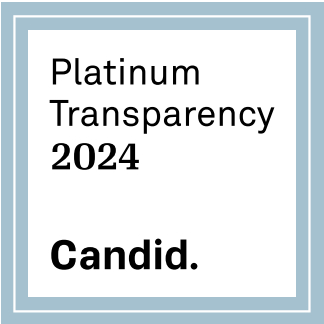Questions and Answers about PPIs
Question
What are the differences between proton pump inhibitors? Do they all have the same side effect profile? If I experience side effects from one, will I experience the same effects if I try another?
Answer
By: J. Patrick Waring, MD, a gastroenterologist at Digestive Healthcare of Georgia, Piedmont Hospital, Atlanta, GA
Proton pump inhibitors (PPIs) are the most commonly prescribed class of medication for the treatment of heartburn and acid-related disorders. They work by blocking the site of acid production in the parietal cell of the stomach.
Because there are millions of parietal cells that are constantly reproducing, complete inhibition of stomach acid production is virtually impossible. This probably explains the tremendous safety of these medications.
However, side effects can occur, and some people are at increased risk for adverse events (see below).
There are a number of PPIs available in the United States and more are in development. The medications are structurally and chemically similar. There are relatively few comparisons of these drugs with each other.
All the medications heal esophagitis in 90–94% of patients. There are no significant differences in overall healing and symptom improvement rates between the medications.
Omeprazole (Prilosec) and lansoprazole (Prevacid) have been available the longest and consequently are the most familiar to physicians and patients. Omeprazole and lansoprazole are now available over-the-counter.
While the newer medications, rabeprazole (Aciphex) and pantoprazole (Protonix) have data to suggest better suppression of stomach acid compared to omeprazole, there is no proof that the differences are clinically important. Rabeprazole and pantoprazole are smaller and may be better for patients who have problems swallowing capsules. Pantoprazole is marketed as being cheaper, and may be better for patients paying for their own medications.
Esomeprazole (Nexium), a new and very potent PPI, was approved by the U.S. Food and Drug Administration (FDA) in 2001. Zegerid is a combination of omeprazole and sodium bicarbonate.
Dexlansoprazole (Dexilant) was FDA approved in 2009. Dexilant was originally known as Kapidex.
Information on side effects from studies where a PPI is compared to a placebo shows that the most common side effects are headache, abdominal pain, bloating, diarrhea and nausea. They occur in 1-2% of patients given PPIs.
Interestingly, the incidence of these side effects is the same as when patients take the placebo. It is hard to compare side effect profiles between the medications, but there is no reason to believe that there are significant differences.
There is no scientific data to guide physicians on how to deal with the relatively few patients that have side effects from one of the PPIs. However, nearly all physicians have had the experience of switching from one PPI to another successfully.
If you are having side effects from a PPI, you will not necessarily develop the same side effects if you switch to another PPI. Discuss this option with your physician. The only exception may be in the extremely rare instance of severe allergic reactions.
Additional Safety Information
Source: U.S. Food and Drug Administration (FDA). Accessed 01/31/2012
- Proton pump inhibitors are effective in treating a variety of gastrointestinal disorders. Do not stop taking your proton pump inhibitor unless told to do so by your healthcare professional.
- Be aware that an increased risk of fractures of the hip, wrist, and spine has been reported in some studies of patients using proton pump inhibitors. The greatest increased risk for these fractures was seen in patients who receive high doses of these medications or use them longer (a year or more).
- Read and follow the directions on the OTC Drug Facts label, when considering the use of OTC proton pump inhibitors.
- Be aware that the OTC proton pump inhibitors should only be used as directed for 14 days for the treatment of frequent heartburn. If your heartburn continues, talk to your healthcare professional. No more than three 14-day treatment courses should be used in one year.
- Talk to your healthcare professional about any concerns you may have about using proton pump inhibitors.
Long-term PPI therapy safety study: Is there an increased risk of hip fracture?
A study published in JAMA (2006;296:2947-2953) was conducted to determine whether there is an association between long-term proton pump inhibitor (PPI) therapy and the risk of hip fracture. The study concluded that long-term PPI therapy, particularly at high doses, is associated with an increased risk of hip fracture.
Question
What does this study mean for people who benefit from taking a PPI?
Answer
By: J. Patrick Waring, MD, a gastroenterologist at Digestive Healthcare of Georgia, Piedmont Hospital, Atlanta, GA
Many patients were alarmed recently by news reports of a 44% increase in the risk of a hip fracture if they are taking a proton pump inhibitor (PPI). The currently available PPIs include:
- omeprazole (Prilosec, Prilosec OTC, Zegerid)
- lansoprazole (Prevacid)
- pantoprazole (Protonix)
- rabeprazole (Aciphex)
- esomeprazole (Nexium)
- dexlansoprazole (Dexilant)
This is the latest in a series of articles that have questioned the safety of these powerful, widely used medications. Worldwide, PPIs have been available for over 20 years.
In the 1980s there were concerns that, by profoundly decreasing stomach acid production, they might lead to other health problems such as serious infections, poor absorption of vitamins and minerals, even gastrointestinal cancers. However, by the mid-1990s, based largely on anecdotal experience, it was becoming clear that PPIs were remarkably safe.
Formal studies looking at the use of PPIs in hundreds of patients showed virtually no long term side effects. As a result, new PPIs were developed, PPIs became generic and ultimately available over the counter without a prescription. This was a great advance in our ability to treat the millions of patients worldwide that have acid-peptic diseases.
In the last few years, researchers have been able to evaluate the side effects and complications of medications by using large databases of millions of patients.
A recent report in the Journal of the American Medical Association (JAMA) looked at the medical records of over 9 million people in the United Kingdom. They were able to identify over 13,000 people with a hip fracture and compare them to over 135,000 people who did not have a hip fracture. They found that using a PPI for over 1 year increased the risk of a hip fracture by 44%. They also found that the risk increased further if the patients were taking the PPI a longer period of time, or at higher doses. This is probably due to impaired calcium absorption when there is less acid in the stomach.
Now, it must be mentioned that the patients with hip fractures in this study were much more likely to be a cigarette smoker, be thin, be a diabetic, be alcoholic, have had a stroke, had dementia or had previous bone fractures.
Studies like this talk about the risk per patient-year of follow up. For example, if one follows 100 patients for 10 years, that is 1,000 patient-years of follow-up. This study suggests that the risk of a hip fracture that is specifically related to PPI use is about 2 per 1,000 patient-years.
There have been other reports over the past couple of years about the possible risk of pneumonia and infections of the colon with a bacterium called clostridium difficile in patients taking PPIs. Again, these articles looked at the medical records of hundreds of thousands of patients and found a small increased risk in patients using PPIs. Additionally, like the hip fracture study, other medical illnesses such as diabetes, heart and lung disease were also important risk factors.
The Canadian Task Force for Preventative Health Care recently published recommendations for the prevention of osteoporosis in women. It mentioned major risk factors such as advanced age, family history of osteoporosis, early menopause, the propensity to fall and minor risk factors such as being thin, smoking, excess alcohol or caffeine intake. We may learn that long term PPI use will be considered a minor risk factor.
If you need to take a PPI, you should talk with your doctor about your risk of osteoporosis. If you have other risk factors, you may need a bone density test. You may simply need to take exercise more or take calcium supplements. You may need to take one of the many excellent medicines for osteoporosis.
It has probably been wishful thinking that the long-term use of PPIs was perfectly safe. Like most medications, there are side-effects and complications. Fortunately the overall risk of long-term PPI use still seems to be relatively small.
Common sense tells that if you don’t need to take a PPI, you should talk to your doctor about stopping it. There any many people taking PPIs that could be using a less powerful medication. However, most people who need to take a PPI should be able to safely continue to take it without the fear of serious complications.
Reflux Symptoms Not Always GERD
A study of 106 individuals with typical reflux symptoms persisting despite treatment with proton pump inhibitors (PPIs), which limit acid secretion in the stomach, aimed to determine the underlying cause of reflux symptoms not responding to PPI therapy. The study found that approximately one-third of the patients suffer from disorders other than gastroesophageal reflux disease (GERD), predominantly functional heartburn, concluding that this explains, at least partly, why many patients will not benefit from acid inhibitory treatment.
Source: Herregods TVK, et al. Neurogastroenterol Motil. September 2015.









